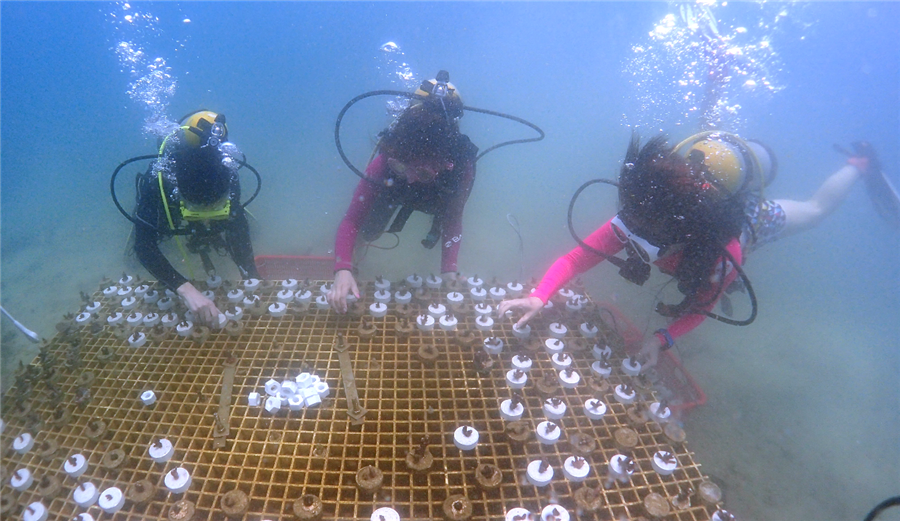Beneath the sea, coral making a comeback


Liao Baolin, 37, and his friends are dedicated to the research and protection of coral reefs. Over the past 12 years, they have planted more than 60,000 corals in Guangdong province.
Liao was born in Taining, Sanming, Fujian province. He started working with the administrative bureau of the Guangdong Xuwen coral reef national nature reserve in 2006.
At that time, not many people had an awareness of the need to protect coral reefs. Liao was shocked by what he saw during his first inspection dive.
In some areas, corals were severely damaged, with fragments scattered on the barren seabed.
That's when he started planting coral.
In 2016, Liao joined the Shenzhen Research Institute of Guangdong Ocean University, where he served as deputy director of the research center dealing with coral reef protection and the technology of restoration.
He set up China's first rare and endangered marine life rescue network targeting corals and coral reef marine life. His team obtained a license for stony coral domestication, reproduction and collection. Together with a number of social organizations, he established China's first coral charity fund.
Liao led the formation of 30 census teams, which carried out a number of coral census public welfare activities for five consecutive years. Influenced by him, more than 3,000 volunteer divers from around the country joined his coral conservation activities.
Liao said his team breeds and plants mainly stony coral. The coral reproduction is divided into sexual reproduction and asexual reproduction.
"The asexual reproduction of corals is a bit like planting trees. You can cut off the branches of corals, insert them in other places and raise seedlings before transplanting them," he said.
Since many uncontrollable factors make coral planting difficult, plans must be carefully laid before each underwater operation.
"We have worked for more than 10 years on coral planting at the Shenzhen Institute of Guangdong Ocean University. Our team has gained useful experience and developed leading technologies," he said.
He hopes to become a leading person in marine ecology and find a more effective way to restore the near-shore ecological environment.
Huang Mengqin contributed to this story.
























